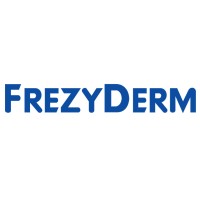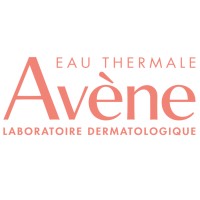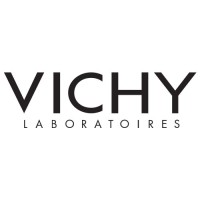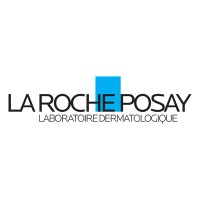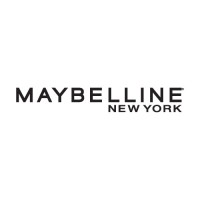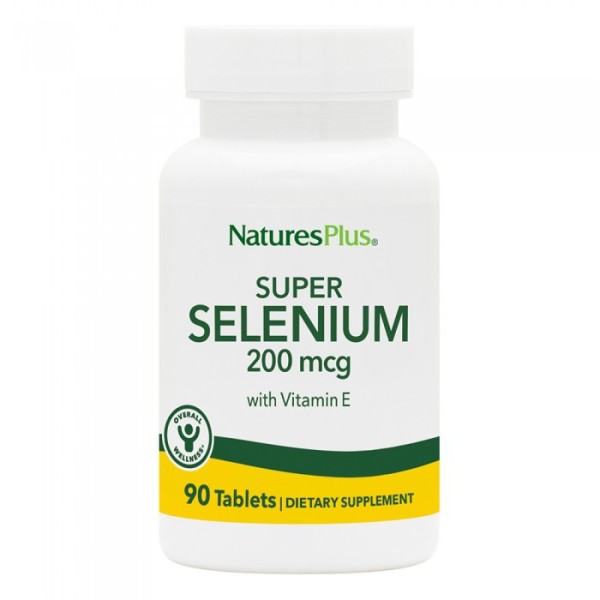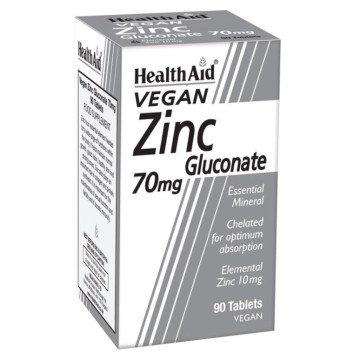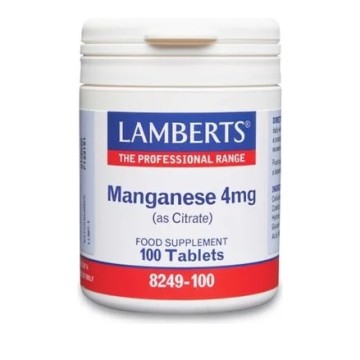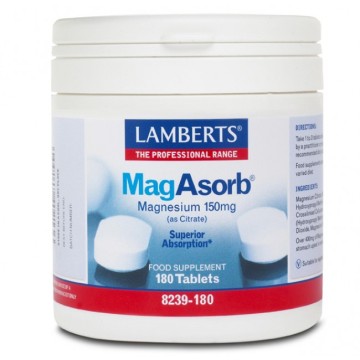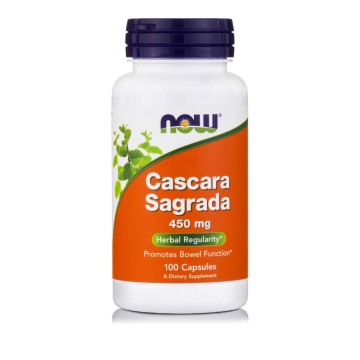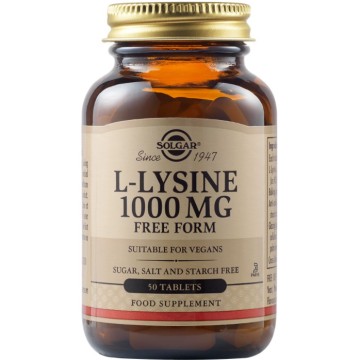Free shipping on orders over 39.00€
Natures Plus Super Selenium 90tabs
PROPERTIES OF SELENIUM
Selenium is an important trace element, necessary for the production of glutathione peroxidase, a very important enzyme found in every cell of our body. Selenium is found in meat, fish, wheat and whole grain flour, eggs, soy, garlic, onion, broccoli, alfalfa, kelp, etc., but the selenium content of foods varies greatly, according to the soil from which they come. Thus, soils rich in selenium give foods rich in this trace element, while the opposite happens in soils poor in selenium. This fact can be of decisive importance for the health of the inhabitants of an area, given the great importance of selenium. For example, the soils of the SW United States contain the lowest level of selenium in the entire US. In fact, residents of these areas have the highest rate of stroke in the entire US. It should be noted that breast milk is not particularly rich in selenium (1,5-2 mcg/100mcg), but it obviously covers the needs of infants. However, cow's milk, being 5-6 times poorer in selenium, may contribute to the creation of a weakened immune system and the easier attack of the infant by infections and other diseases. Despite all the extraordinary importance of selenium, which has been used in alternative medicine for decades, the FDA only recognized it as an essential trace element for humans in 1990. This shows, once again, that the establishment, even when expressed by a prestigious organization such as the FDA, has, often, extremely delayed reflexes, in terms of research and findings of nutritional, mild and, in general, of alternative medicine.
Selenium as an Antioxidant
The antioxidant properties of selenium are identical to those of peroxidase. of glutathione. This enzyme stops the oxidation of fats, especially bad (LDL) cholesterol. That means less material available to clog arteries, less heart disease, less stroke. Research has shown that where there is heart disease there is also glutathione peroxidase deficiency, due to the lack of enough selenium to produce it. This is where selenium supplements can play an important role. Indeed, according to a study by Israeli researcher Dr Avitan at the Rambam Medical Center in Haifa (1998) selenium supplementation led to a 46% reduction in LDL oxidation, which means a halving of the cholesterol that can form atherosclerotic plaque . Here we should emphasize that the preventive possibilities of selenium are much greater than the therapeutic ones, since when the cardiovascular system suffers damage it is difficult to correct it. However, the beneficial effect of selenium, due to its strong antioxidant properties, does not stop here: in collaboration with vitamin E, it strengthens the thyroid, pancreas, liver and immune system (see also below: cancer), while it is very useful for athletes, since it protects against muscle problems caused by free radicals, which appear after intense exercise.
Selenium and Cancer
In a ten-year clinical study conducted by a research team at the University of Arizona led by Dr Larry Clark, 200mcg of selenium was given to 1.312, mostly elderly, people with a history of skin cancer. The purpose of the study was to see if selenium could prevent the recurrence of skin cancer. Regarding this part, the study gave disappointing results, since both the group that got selenium and the group that got placebo had about the same rates of skin cancer recurrence. But when the researchers looked at all the statistics, they were surprised to find that the selenium group had a 37% lower rate of life-threatening cancers, while the overall death rate was 52% lower in the selenium group compared to the control group. placebo group. Specifically, the selenium group had 46% fewer lung cancers, 62% fewer colon cancers, 67% fewer esophageal cancers, and 72% fewer prostate cancers (JAMA, 1996, 276: 1957-1963) The findings these were confirmed in November 1997, when the International Institute of Epidemiology published the results of a long-term study on the effectiveness of vitamin and mineral supplements. According to this large study, in which 30.000 people took part, taking selenium together with vitamin E significantly reduces both the risks of cancer and deaths from cancer. Another study done in China showed that people who received 200mcg of selenium for 4 years experienced significantly reduced rates of primary liver cancer, compared to a control group that did not receive selenium. The above, as well as other studies, lead some researchers to hypothesize that selenium's role is primarily preventive, and that once cancer occurs, selenium cannot stop its growth, but it may be able to slow it down.
Selenium and AIDS
AIDS sufferers are known to have low levels of selenium. The question that has not yet been answered with certainty is whether selenium deficiency is the result of the disease or whether, on the contrary, the disease is (and to some extent) the result of selenium deficiency. The professor of pathology at the University of Georgia, USA, Ethan Taylor recently developed a very interesting theory, according to which it is selenium deficiency that favors the multiplication of the AIDS virus. The fact that the disease is so widespread and causes so many deaths in countries where malnutrition is endemic, such as some African countries, seems to favor the theory.
Dr. Taylor cites, in support of his theory, the following noteworthy facts:
- Selenium is essential for the proper functioning of the immune system and, in fact, enhances T-cells and the activity of interleukin 2 (IL-2), a natural immunostimulatory substance considered as a candidate therapeutic agent for AIDS.
- We already know that some viruses, which under normal conditions are inactive, become pathogenic under conditions of selenium deficiency.
- The AIDS virus does not reproduce at the same speed in all infected people, but there are all gradations, from very fast to slow reproduction. This may mean that the most severely affected have some defect in their antioxidant defenses, since the virus has been shown to replicate faster in conditions of oxidative stress. This is exactly where selenium and possibly several other antioxidants can help.
- Experiments in vitro (in test tubes) have shown that selenium prevents the reproduction of the AIDS virus.
If this theory is finally verified by time and future research, it is self-evident that selenium will become extremely important, in terms of the preventive and therapeutic treatment of AIDS.
OTHER PROPERTIES
- There is growing evidence that selenium has a number of other preventive and therapeutic properties, but these need further research to be sufficiently substantiated.
- In principle, it appears to have anti-inflammatory properties and to relieve some arthritis sufferers (especially in combination with vitamin E) of pain and morning stiffness.
- According to one study, selenium can save lives if given at the onset of acute pancreatitis, which is marked by sudden abdominal pain, nausea and puke. In such a case selenium limits pancreatic inflammation in 24 hours.
- There is evidence that selenium is important for sperm cell health, both structurally and in terms of protection against free radicals. roots.
- A study was done in Scotland with 64 men of which about half had the role of the control group (Placebo group). All had low levels of selenium. At the end of the study, after two years, the selenium group had increased sperm motility compared to the placebo group, and five people in the group had children compared to none in the placebo group.
- A study using 400mcg of selenium and 25IU of vitamin E for skin problems such as acne and seborrheic dermatitis showed significant improvement in patients.
- In another study done in Finland, elderly patients were given high doses of selenium and vitamin E for a year. Already, from the first months, patients experienced a reduction in fatigue, depression and anxiety and an increase in their alertness, interests and personal care.
- Finally, selenium, according to some researchers, protects against toxic metals, such as mercury, lead, arsenic, platinum, copper (toxic only in high doses above 10 mg per day). The explanation given for such protection is that selenium forms complex insoluble compounds with toxic metals, which are not absorbed by the intestine.
A case that confirms the above researchers is the former Yugoslavia, where mercury workers appear to have minimal effects from overexposure to this highly toxic metal, due to the high content of Yugoslavia's soils (and, consequently, food) in mercury. selenium. It should be noted here that, according to one hypothesis, one of the main causes of multiple sclerosis is the accumulation of toxic metals in the body. Indeed, this condition is increased in areas poor in selenium.
EAN: 0097467035010, 097467035010, 97467035010
Components
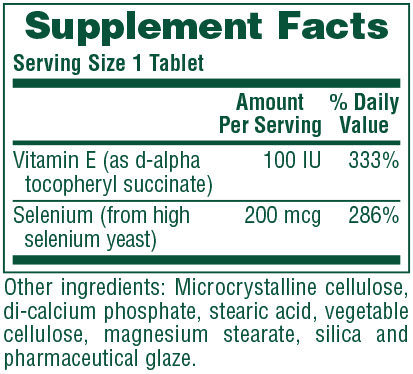
Use
Common use: One tablet a day.
CONTRAINDICATIONS - PRECAUTIONS
Studies have shown that continuous long-term intake of 500 - 700mcg of selenium does not cause any symptoms of toxicity. The same may be true for much higher dosages, such as 1.000 or 2.000 mcg, but it should be noted that these numbers may be much lower for people living in selenium-rich soils.



